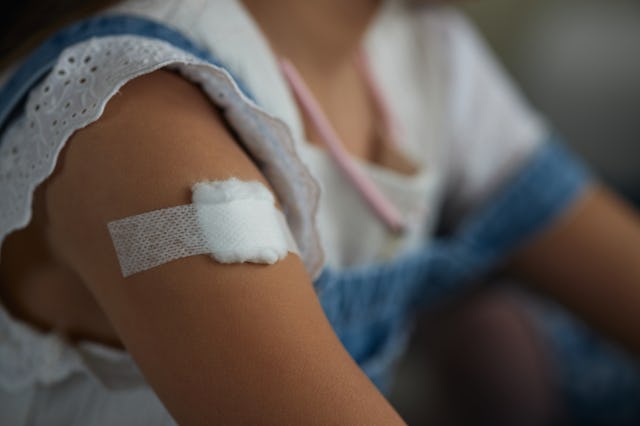Vaccine Efforts Have Slowed Or Reversed Over The Past 15 Years, According To New Study
WHO’s vaccination efforts have saved millions of children’s lives. So why are countries balking now?

In 1974, the World Health Organization launched the Expanded Programme on Immunization or EPI. Now called the Essential Programme on Immunization, the EPI is an initiative to provide equitable access to vaccines for children around the world, regardless of their geographic location or socioeconomic status. Since its inception, approximately approximately 4 billion children have received vaccines, preventing more than 154 million deaths worldwide, nearly 95% of which have been in children younger than 5. But while the gains over the past 50 years have been extraordinary, a more granular look at the data raises some concerns about the progress of the program in recent years and moving forward.
A new study, published earlier this week in The Lancet, looked at global, regional, and national trends in routine childhood vaccination coverage from 1980 to 2023 with forecasts to 2030. While the EPI has doubled vaccination rates for tuberculosis; measles; diphtheria, tetanus, and pertussis (DTP); and polio in that period, coverage gains slowed between 2010 and 2019 for at least one of the aforementioned vaccine doses. This includes 21 of 36 high-income countries and territories and controls for the fact that the vaccine for tuberculosis has been removed from routine immunization schedules in some countries.
There was further slowing or even regression of vaccine uptake during the height of the Covid-19 pandemic. “Global coverage for all original EPI vaccines declined following the onset of the COVID-19 pandemic,” the report observes. “Substantial COVID-19 pandemic-related disruptions to global ... began in 2020, generally increased in 2021 and 2022, then improved but did not fully resolve by 2023.”
Measles coverage declined between 2010 and 2019 for 100 of 204 countries and territories, with the most pronounced decrease found in Latin America and the Caribbean. Rates for DTP (two doses) and polio declined for 100, 98, and 107 countries and territories, respectively, within the same period. Again, this was most pronounced in the Caribbean and Latin America. Of 158 countries and territories that include immunizing against tuberculosis in their vaccination schedule, coverage declined in 88 of them.
Researchers attribute these declines to a number of factors. Increasing disparities in poor or conflict-destabalized regions have made efforts significantly more difficult. Increased rates of migration and displacement also reached fever pitch in the 2010s, with millions fleeing Ukraine, Venezuela, Syria, Yemen, South Sudan, and Libya. And more and more, vaccine hesitancy has become an issue for the EPI. In 2019, the WHO declared vaccine hesitancy as one of the top ten threats to global health, and it’s only become more challenging since the pandemic.
“The COVID-19 pandemic, which in many areas bred declining trust in public health institutions and polari[z]ed opinions about the necessity and safety of vaccination against COVID-19, has had varying effects on public perceptions regarding the importance of routine childhood vaccination and willingness to vaccinate,” the study says. Global analysis in 2023 found that this hesitancy ranges considerably depending on region, from 13.3% in the Americas to 27.9% in the Eastern Mediterranean. In some African nations, rates were even higher.
Despite increased vaccine hesitancy in America, the overwhelming majority of children are vaccinated — 93% overall. But even so, skepticism about vaccine efficacy and safety are rising and kindergarten vaccine exemption rates in 2023–24 were the highest ever reported.
As such, researchers believe the WHO’s vaccination goals for 2030, aimed at reducing mortality and morbidity from vaccine-preventable diseases internationally, is unlikely to be realized under current conditions. “These present and future challenges should be met with firm confidence in the power and promise of vaccination, rooted in the successes of the past 50 years of EPI,” they conclude. “It is important that the global health community embrace our shared responsibility and whole-heartedly reaffirm our collective commitment to routine childhood vaccination to deliver on the promise of EPI to provide all people, everywhere the opportunity to live full and healthy lives.”